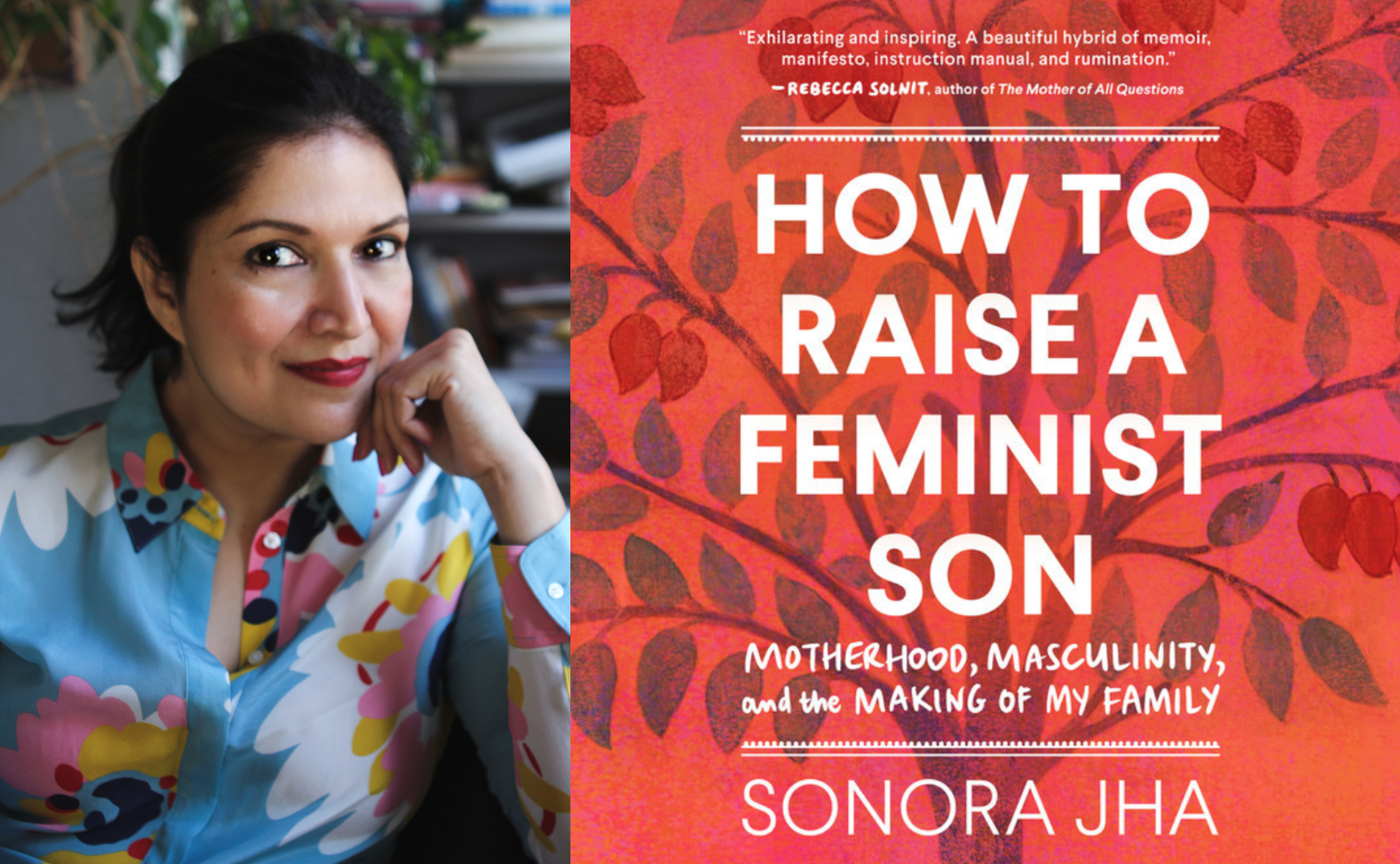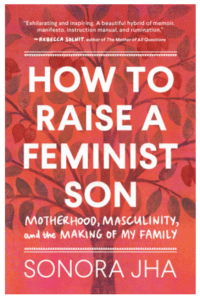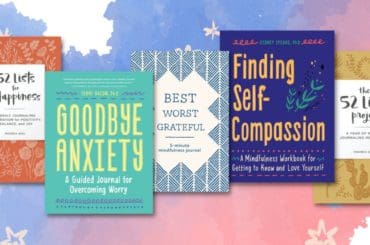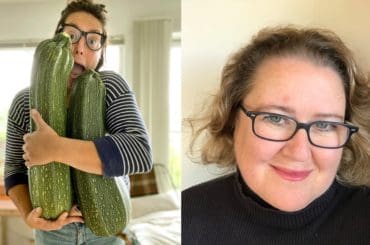
Get to know Sasquatch Books author Sonora Jha! In this interview, she shares her motivation for writing, thoughts on feminism, advice for parents raising boys (and girls!), what gives her hope for the future, and more. Her memoir How to Raise a Feminist Son publishes on April 6th.
What is How to Raise a Feminist Son about?
It’s a collection of personal essays chronicling where we have arrived as a culture in raising boys and where we could be headed. It’s also a manifesto, a manual, and a love story of an Indian immigrant mother raising an American boy. These essays tell stories of the heartbreak and joy of an American boyhood from my experience of being a fiercely feminist mother living in two cultures. I share how to navigate everything from bedtime stories to toxic masculinity, peer pressure to mass media, Woody Allen to the Boy Scouts of America.
What inspired you to write How to Raise a Feminist Son?
I started out writing a straightforward memoir. I couldn’t quite home in on the theme. Then I realized I kept publishing political essays and personal essays about feminism and masculinity that centered on my motherhood and my conversations with my son. Those were the pieces that people responded to with such a visceral hunger. I realized that my enterprise of raising a feminist son was spilling into these essays. Of course that’s what my memoir needed to be about!
What’s one thing you learned while writing this book that’s surprised you?
How badly people want it. When people would hear the title of the book, some of them would gasp or sigh and ask when they can get their hands on it because they or someone they know really needs this book. I knew I should write this book, but I was surprised by how urgent it feels now.
Were you always a feminist?
I became a feminist the day I noticed, around five years of age, that my brother had more freedom to roam the neighborhood than I did, and that I was scared of him. I didn’t know the word “feminist” back then, of course. But feminism was a feeling. I became a sworn feminist at the age of 20. But am I a good feminist? Oh, I have some really bad days!
Is the feminism in the book intersectional? Will it be useful for raising boys of color?
I am an intersectional feminist. Intersectional feminism is the only kind of feminism, in my mind. I am a brown-skinned immigrant woman in America. I raised a brown-skinned boy within the racial injustices of the United States. I write about racism, raising boys, and about how white America and white feminism must examine its racial history and present in order to move forward.
What’s your best advice for a parent with a newborn?
More than anything, just relax and fall in love with your baby. Then, take a deep breath and trust your instincts as you commit yourself to building a feminist world for your child.
This book is about raising feminist sons. What should we tell our daughters to expect from their male peers?
Tell them to expect better. Tell them to demand better. Tell them to expect that boys support them and also get out of their way.
Do you think families who have LGBTQ kids will find something in this book?
While I have written this book primarily for those who want to raise cisgender boys to be feminists–because cisgender boys are the ones through whom toxic masculinity does its terrible work–there’s something in it for all families and educators. I also do include the experiences of some trans and gender nonconforming individuals as well as parents of queer kids in this book. It’s also a memoir in essays–that I hope will resonate with people on many levels.
What can you tell people who are reeling from toxic masculinity recently on display in our country?
Things sometimes get really bad before they get really good. Our boys have seen the ugliness–the anxiety, the destruction, the deaths–caused by toxic masculinity in recent years and months. They are aching for a different world.
What gives you hope when you see today’s young men?
My son, his friends, and my students . . . they’re listening to women, believing them, signing up to be led by them . . . more than men in my generation. These boys don’t want to be feared, they don’t want to be rough with each other, they want to be emotional, and they want to be able to fail. They want equal friendships and partnerships with girls and women.
What does your son think of the book?
He is a very private person and is an introvert, so his first reaction was that he didn’t want the attention. He also said he abhors “performative” feminism and dislikes young men claiming to be feminists because it’s fashionable. Then he cheered me on as I wrote it, and he helped me with some of the research and connected me to some of his friends for interviews. He said he wouldn’t read it before it was published so I wouldn’t feel like I had to censor myself. When you raise a feminist son, he knows how to get out of your way . . . in the sweetest way!
What did you not know about feminism before that you wish you could tell your younger self?
That neither motherhood nor feminism are about perfectionism. The failures are where feminism found me.
How to Raise a Feminist Son is available for preorder and publishes on April 6, 2021.

SONORA JHA, PhD, is an essayist, novelist, researcher, and professor of journalism at Seattle University. She is the author of the novel Foreign, and her op-eds and essays have appeared in the New York Times, the Seattle Times, the Establishment, DAME, and in several anthologies. She grew up in Mumbai and has been chief of the metropolitan bureau for the Times of India and contributing editor for East magazine in Singapore. She teaches fiction and essay writing for Hugo House, Hedgebrook Writers’ Retreat, and Seattle Public Library. She is an alumna and board member of Hedgebrook Writers’ Retreat, and has served on the jury for awards for Artist Trust, Hedgebrook, and Hugo House.




